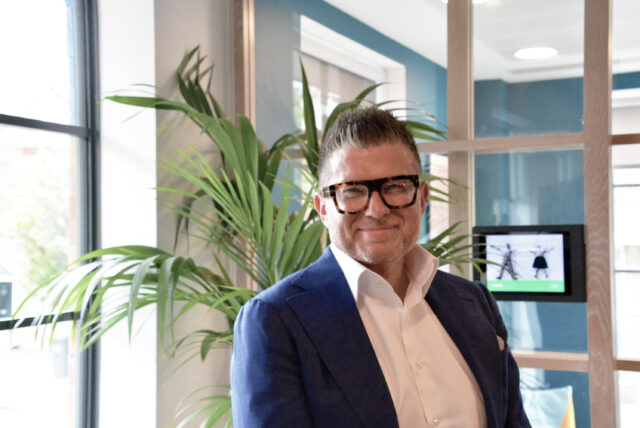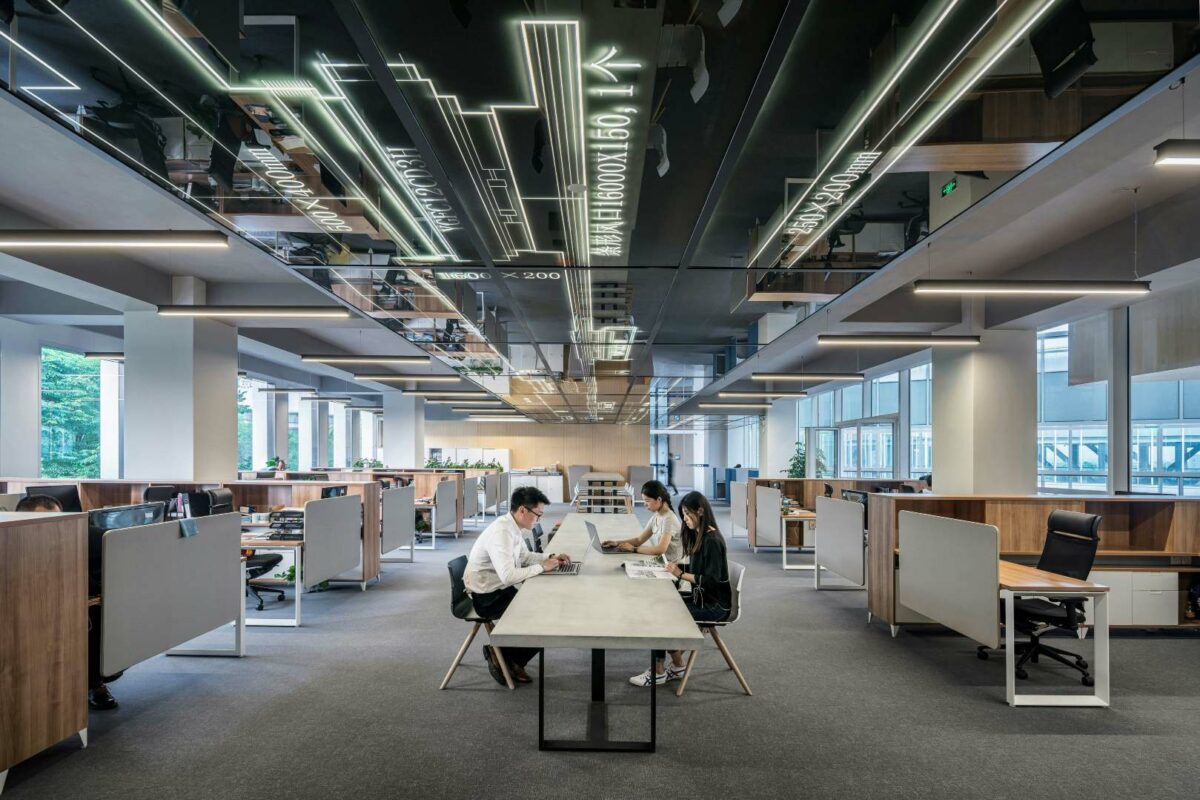Just as the dust begins to settle on hybrid working, the UK cost-of-living crisis is set to drive further change in working patterns. As businesses and individuals feel the squeeze of the economic downturn, the prospect of redundancies is unfortunately front of mind, and employees will want their contribution recognised by decision makers more than ever. This is why we are predicting an uptick in office attendance, driven by presenteeism.
However, although an office at capacity may look busy and productive, employers will need to consider the reasons why they are seeing an increase in attendance and keep a close eye on people’s health and wellbeing before they celebrate what might seem to be a newly enthused workforce. There also needs to be a consideration of how ready existing workspaces are for this change, as businesses that have reshaped to accommodate hybrid will now have to pivot again to manage increased attendance. This doesn’t mean an end to hybrid working though, it just requires a more dynamic approach that extends beyond the 2 or 3 days in the office that employers are currently seeing.
The desire to be seen and heard
Businesses are coming to terms with the fact that the economy is going to get worse before it gets better and, as time goes on, employees will naturally become more concerned about job security. Despite many having achieved a successful move to hybrid working, the idea that visibility equals productivity still exists, and will push people back to the office as they seek to prove themselves.
Presenteeism has traditionally meant people coming into work when they’re sick, and when employees are weighing up their priorities, the prospect of being out of work, as their living costs continue to soar, is extremely daunting and is likely to outweigh the benefits of working from home, even when employees are genuinely sick. Businesses should be looking beyond the physical to identify employees who are too tired, stressed or who are struggling with their mental health.
How to intervene
The first step for business leaders is recognition. It’s their responsibility to look out for the signs of presenteeism and spot when someone’s not well enough to be working. Intervention isn’t just about fulfilling a duty of care to employees; it also makes commercial sense. Turning a blind eye will inevitably lead to bigger problems in the future – burnout is bad for business.
By taking a proactive look at the design of workspaces, business leaders can help alleviate and reduce stress levels. Accommodating a return to the office driven by anxiety over job security requires a different approach than enticing people to come in more often. Employers need to strike a delicate balance between a space that honestly understands the drivers of increased attendance and one that gives people permission to focus on their wellbeing at work.
For example, softer spaces that provide a break from the pressure of heavily corporate environments have a huge role in allowing people to decompress, but it’s more important than ever that they’re carefully designed and targeted so that they actually do this. A superfluous breakout space brings little value and can be a source of negative sentiment, especially when it’s sitting empty while people feel chained to their desks.
Likewise, it may seem counter-intuitive to provide more traditional desk-based space when the recent direction of travel has largely been towards more diverse areas. But the thinking behind presenteeism is based on old habits and assumptions of what productivity looks like, and employers need to accommodate for this as well. Being confined to soft furniture or a breakout area in a workplace when no desks are available will only worsen the experience for people who are already stressed.
A new, new normal
The economic downturn is likely to change the way people think about hybrid working. Increased attendance and presenteeism won’t spell the end for this way of working, but we will see it evolve from the 2 or 3 day model that’s more common now towards the 4/1 day structure favoured by many in the financial sector. It’s a transition that will happen in tandem with many companies testing the waters around a 4-day week, which could further push people into the office before spending that fifth day at home.
For businesses that have worked hard to provide their people with a level of choice when it comes to hybrid working, it’s important that this isn’t eroded by a culture of presenteeism and the power to choose taken away from employees. In this context, a dialogue with employees is imperative, as is a willingness to change and be flexible. Behaviours and working patterns ebb and flow with economic conditions, and workplace design should do the same.
This challenging economic period will drive presenteeism and offices will begin to fill up again in 2023. While the picture will be one reminiscent of 2019, lurking below the surface is the reality that this is by no means business as usual.
Leeson Medhurst is head of Workplace Strategy at Peldon Rose. His work seeks to understand the influence of environments on human behaviour. During his career, he has supported businesses to deliver effective workplaces by assessing activities and occupancy, balancing functionality with need. This allows him to unlock opportunities in property portfolios and employment productivity through effective workplace consultancy and change management strategy.

About Peldon Rose
Peldon Rose is a workplace design and build company specialising in creating workplaces which elevate the lives of the people who use them while delivering real business value.
Taking a bespoke approach to every project, Peldon Rose and its team of workplace thinkers and makers invest time to learn about a business to create an office space that reflects the identity of a client. By offering an end-to-end service using evidence-based design and strong, collaborative relationships with clients, Peldon Rose deliver workspaces which inspire and promote a positive business culture.
Learn more about Peldon Rose here: https://www.peldonrose.com/
Content Team
Work in Mind is a content platform designed to give a voice to thinkers, businesses, journalists and regulatory bodies in the field of healthy buildings.




